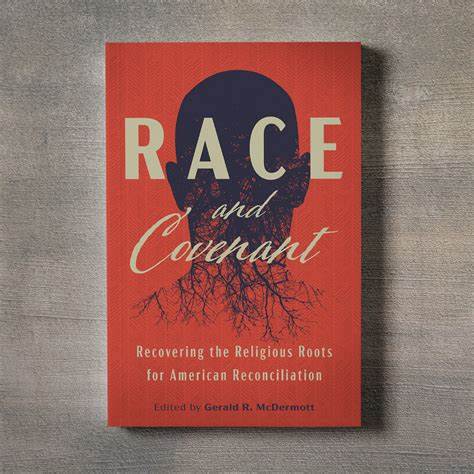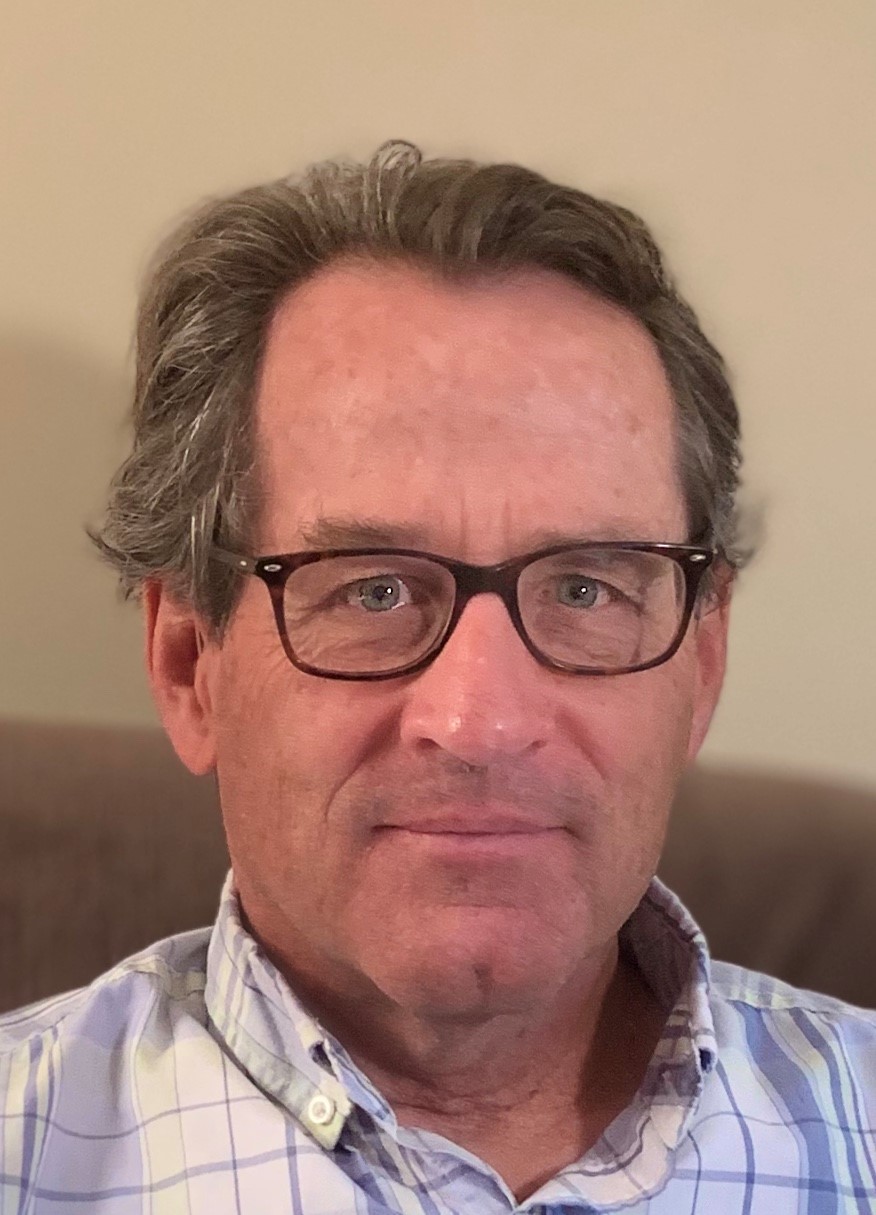Our nation is roiled by a debate over whether it is systemically racist, and how to think about race. Christians wonder how the gospel applies to this confusing debate. How should we think about our nation’s racist history? Where does God fit in? How should we respond as Christians? I have been privileged to join IRD-hosted discussions with Jewish and Christian thinkers—mostly black—on this subject in the last few years. Based on these discussions and their writings, I propose five approaches to our most difficult domestic problem.
- We must reclaim the Judeo-Christian national covenant tradition.
Both Jews and Christians for most of their histories have believed that God deals with whole societies and not only individuals, and this belief has helped them respond to crises. We are in such a crisis in our own nation today, and this “national covenant” tradition gives us rich resources for learning from our crisis and getting beyond it. We need healing, but we also need the national covenant and its concept of exile to help us do what is needed for healing. As Rabbi Mitch Rocklin has argued, a sense of exile can help us recognize where we have gone wrong, and what we must do to return from exile. Even Americans who are not sure of God can learn from this tradition–its diagnosis of mortal sin and its prescriptions for repentance and spiritual renewal. All of us can use this tradition to renew our commitments to America’s ideals of liberty and justice for all. We can learn from Frederick Douglass, Abraham Lincoln and Martin Luther King Jr., all of whom saw America and its racial crises through this prism of national covenant. They insisted that return to God and his Kingdom principles of love and justice were necessary for national healing. As IRD President Mark Tooley has put it, liberals need to learn that there is divine mercy and not only judgment for a nation that repents, and conservatives need to recognize divine judgment for sins that go beyond culture war hot buttons. If religious Americans take the lead to use this tradition, we can reclaim the good news that there can be return from exile. God can still redeem a nation by his infinite mercy.
2. We need a reconciliation of memories.
Part of what is needed to come out of exile is to rethink the ways we have remembered the past. We must not forget the sins of previous generations—especially slavery and Jim Crow. But neither should we fixate on them and forget that America has come a long way from those times of massive evil against blacks and other minorities. The Civil Rights movement was an enormous success, led by courageous and principled leaders of the black churches working with other Christians and Jews. As James Kennedy has shown, the passage of the Civil Rights Act of 1964 was possible because of religious arguments, among other things, made on marches and in the Congress. The movement probably would not have succeeded without the Christian commitments of the activists to pray and read Scripture daily, meditate on Jesus’ teachings, seek reconciliation rather than victory, walk and talk in a manner of love (because God is love), and refrain from violence of tongue or heart.
We need to remember that while reconciliation is not always the same thing as forgiveness, it helps to realize that the perpetrators of past evils are different from their descendants, many of whom denounce the sins of their fathers. We should not blame today’s descendants for the sins of earlier generations. Neither should we think that reparations will help. As Menahem Begin argued that Israel should refuse reparations from Germany, reparations would make reconciliation more difficult. They provide an easy way out but rob dignity from both those who give and those who receive. Black political scientist Derryck Green argues that they force the innocent to pay someone else’s debt and so constitute extortion. Odds are, they would never settle accounts.
3. We should embrace an anthropology based on the imago dei.
If we are to find national healing, we must reconsider the way we view our fellow Americans. We must reject the anthropology of identity politics which presumes that the deepest identity of a person is his or her race, which is relatively superficial and finally only a sociological category. This way of defining identity judges the character of the person by the color of skin—precisely what Martin Luther King Jr. denounced. For this anthropology there is no hope for reconciliation or redemption because each individual is bound to the sins or sufferings of ancestors. But if we consider every American as sharing our common human nature and created in the image of God, we can replace the pursuit of a “racial justice” that keeps us fixated on differences with a vision of one another as brothers and sisters who resemble our common Creator.
This Judeo-Christian anthropology will enable us to avoid the dead end of regarding millions of black Americans as victims because of their history. African-American political scientists Carol Swain and W.B. Allen suggest that this is demeaning to blacks who have every human capability of rising above their history and circumstances to become successful. It is also false to history, which shows a long history of extraordinary accomplishments by blacks in the middle class of the twentieth century and others who triumphed against formidable odds. Civil rights leader Robert Woodson says it also ignores the remarkable success of blacks in the inner cities in recent decades to help their children get good educations and launch successful careers. He calls for more attention to be given to these exemplars in the black American experience.
4. We should point to American opportunity.
Swain insists that despite all of our problems, America is still a land of tremendous opportunity. She contends that one’s attitude and belief about future opportunity are more important than social class or sociological race. Terrible schools exist and broken families abound, to be sure. But the cruelest thing we can do to the young, she argues, is to persuade them that the nation’s system is rigged against them. That will strip them of the hope they need to persevere against obstacles—which many have done before them. Besides, in most cases it is a lie.
With opportunity comes responsibility. Those who have succeeded—blacks and whites and others—should think of America as “our” land. As black economist Glenn Loury has put it, we should not divide “us” against “them.” That is often easier to do in terms of class—the upper and middle classes against the underclass. But all of us who by the grace of God have reached a level of prosperity should think of the underclass—whether white or black or Hispanic—as “our” problem, not “their” problem. “We” together must come out of exile. We all share in the American covenant and its fortunes. The ghetto mother on welfare is our responsibility. At the very least we can pray for her and her children. Better yet, we can work through our church or synagogue and political party to seek solutions to the plight of America’s underclass. For God wants us to see our connection to every member of our society, and not just those in our own tribe.
American opportunity is based on mutual respect and independence. Just as it is better to teach a man to fish than to give him a fish, we must use American opportunity so that different communities can look on one another as self-sufficient equals. The path toward that mutual respect will focus on human agency using what Allen calls “hard and patient” labor rather than social or political programs that create dependency.
5. We must cry out to God
Since this nation from its very beginning called on “Nature’s God” and his testimony that “all men are created equal” and deserve “life, liberty and the pursuit of Happiness,” we should consider that God has entered into covenant with these United States, just as he has with every society that claims him. We should not be surprised that our racial conflicts suggest that our covenant God has sent us into a kind of exile for our sins against the covenant suggested in the Declaration. As a nation we have deprived blacks and other minorities of life, liberty, and the pursuit of happiness.
But this same covenant provides for forgiveness and healing, if we recommit ourselves to it. We can and should renew the covenant. Yet we cannot do this without God. The psalmist wrote, “Unless the LORD builds the house, those who build it labor in vain” (Ps 127:1). We need to pray for God to move this nation and our own hearts. If we are to have the love for our enemies that is at the heart of King’s Beloved Community, there is nowhere to get that but from God. By ourselves we can love only those who love us.
We also need God for the power to live by the Golden Rule, which Swain and Green say is essential for racial reconciliation. We all need forgiveness for our many sins. But it is hard if not impossible to forgive those who have discriminated against us because of the color of our skins. Yet Jesus taught in his Golden Rule that since this is what we want from others, we must give it to them—even our enemies. We need God to work in our hearts for this.
The black church led the nation in this kind of self-forgetting love in the 1960s. Now, says Green, is a marvelous opportunity for the black church to lead the nation again. He calls on black churches that have adopted a gospel of race to recommit themselves to the gospel of Christ who forgave his enemies. When black churches take the lead to initiate reconciliation through forgiveness, it will empower them, he claims, and shame whites and their churches that have been hard-hearted.
All of us Americans, especially those of us in churches and synagogues and mosques, need to pray and work toward a culture of life and love. As Alveda King keeps saying, we should refuse to hide the evil of abortion that disproportionately targets black babies in America. If we condemn violence toward blacks and minorities, she urges, we should recognize that this is perhaps the greatest violence and racism. We should continue to support pregnancy centers that help young mothers care for their children after they give birth. We should lobby for alternative sentencing for non-violent offenders, in order to reduce the disproportionate incarceration of black men. According to black sociologist Jacqueline Rivers, black churches need to reach more young men and talk about how extra-marital sex cripples the black family. Both black and white churches should preach against racism without assuming that racism goes only one way, partner with churches of other races in worship and service, and try to reduce barriers to believers of all sociological groups feeling welcome. As African-American preacher Robert Smith puts it, this is not the social gospel but the gospel applied to our social divisions.
America is not the New Israel. God’s covenant with Jewish Israel is unique and not to be repeated. But the God of the Bible suggests that he rules other nations with their own covenants, and that his ways of ruling them are not unlike the ways he ruled ancient Israel. Time and again biblical Israel sinned against the covenant in major ways and several times God sent the nation into exile. But God was faithful to his covenant promises and brought the Israelites back to their land after they renewed their covenant promises.
God will do the same for our nation if we turn back to our national covenant. These things are impossible for men, but all things are possible for God. Let us pray and work for that return from exile. It will bring healing for our land.
Gerald McDermott is editor of Race and Covenant: Recovering the Religious Roots for American Reconciliation (Acton Books).






Comment by David on May 6, 2021 at 1:58 pm
“Both black and white churches should preach against racism without assuming that racism goes only one way….”
Tragically, far too many a predominately “progressive” churches have bought into the great modern lie that racism only runs one way through the embrace of Critical Theory. This runs counter to Scripture, and it is of the same philosophy as the Nazi’s preoccupation with the Jewish race, when it espouses that nearly every societal wrong or bad theology is some how connected to white supremacy as the Nazis did with the Jews. Little do they realize that they are regressing and that they are blind guides.
Comment by George on May 7, 2021 at 11:08 pm
So now I’m to sit in church and listen to a sermon on racism ? Like that is a real problem in our country today. I have a better idea. Why don’t we hear more sermons on the sin of abortion? More sermons about the ills of broken families. More sermons about the pain caused by alcohol and drug use. These are just a few of the things I NEVER hear preached on in our divided United Methodist Church. The politics of racism is being played out as if it’s a major problem and that our churches must unite and fight against it.
Too many brown and black people will die just trying to get to our racist shore. No, racism is not a big problem. Not even top ten. Just plain old run of the mill sin is our problem.
Comment by David on May 8, 2021 at 7:59 am
Unfortuately George, far too many a cleric doesn’t believe in sin. At as presented in the Bible.
Comment by Barbara on May 9, 2021 at 10:22 pm
On another Christian website they stated they are of the “Christian race.” I like the sound of that. I’m all for it. And, I like the idea above about Christian pregnancy centers in inner cities. Every young girl needs people around her to care for her no matter the circumstances.
Comment by Douglas McLellan on May 10, 2021 at 5:56 am
“But the cruelest thing we can do to the young, she argues, is to persuade them that the nation’s system is rigged against them. That will strip them of the hope they need to persevere against obstacles”
Its an interesting perspective. I dont think a lot of persuasion is needed when white police officers treat you horrifically. I dont think a lot of persuasion is needed when housing and job applications are rejected on the basis of a name.
It is interesting that there is a call for black churches to lead and forgive. The messages of the 60s and civil rights were tried and have failed. White America has rejected them. Why should they do that all again when white politicians do their hardest to lock black people out of democracy, out of policy making, out of having a voice? Why are black people and white people policed differently?
Comment by Douglas Ehrhardt on May 10, 2021 at 12:38 pm
Maybe Douglas could go into law enforcement and find out.
Comment by George on May 11, 2021 at 2:46 pm
Yes, it’s sad but true. When one minority is killed by the police, it becomes not just national news but world news. The bad cop slant is implied whether it is deserved or not. In the past several weeks, a dozen police officers have been murdered and news of this is not news worthy on the liberal networks.
I’m old enough to remember the Jim Crow laws and the separate but so called equal standards of the 50s and 60s. Those days are gone. Young minorities of today have no idea what real discrimination looks like. Times change but people will not. Your success in life depends on your own personal decisions and not with others. Knock and the door will open.
Comment by Tina Square on November 13, 2021 at 2:27 pm
Race is a social construct put in place by the legislative branches for the census numbers . Reconciliation is needed and mercy and grace also. Sin is sin and it’s very hard to read that the authors feel the system is not constructively built against people of color. Especially because the infrastructure of communities was built to divide whites from people of color and keep those without personal transportation from enjoying certain beaches. When whole cities have people of color living where toxins are in the air and water. When the medical profession has used people of color for unethical medical experiments and testing . when abortion clinics are put distinctly in communities of color and women of color have woke up from unrelated reproductive surgery sterilized without their consent so they could not have children .
As far as the comment about the mother in the ghetto on welfare, has anyone tried to truly see what that mother does ? Mothers in the Ghetto are often working 2 jobs and still not able to feed and clothe and put a roof over the children’s heads without that little bit of public assistance. Welfare which by the way made her feel ashamed to have to apply for!
Studies show children of color are expelled In Higher percentages than white children especially if they have a need for learning accommodations afforded to all children by the ADA law of 1974 and 1990.
When we begin to truly want to be like Christ; who ate, drank and healed the sick and hurting. Who also formed relationships with the people of communities who were looked upon as misfits, the outcast and pariahs; then reconciliation will occur .
When a white 8 year old and a black 8 year old are on a playground and the white child calls the black child a n*****. In front of the black parent and their white parent and the white parent says the child must of heard it on tv because they don’t talk like that .
We will never become united or reconciled and the words of the Pledge of allegiance which say One. Nation Undet God ….
With Liberty and justice for all until it is practiced for all people who live in this United State. Not just for the. White rich privileged citizens.